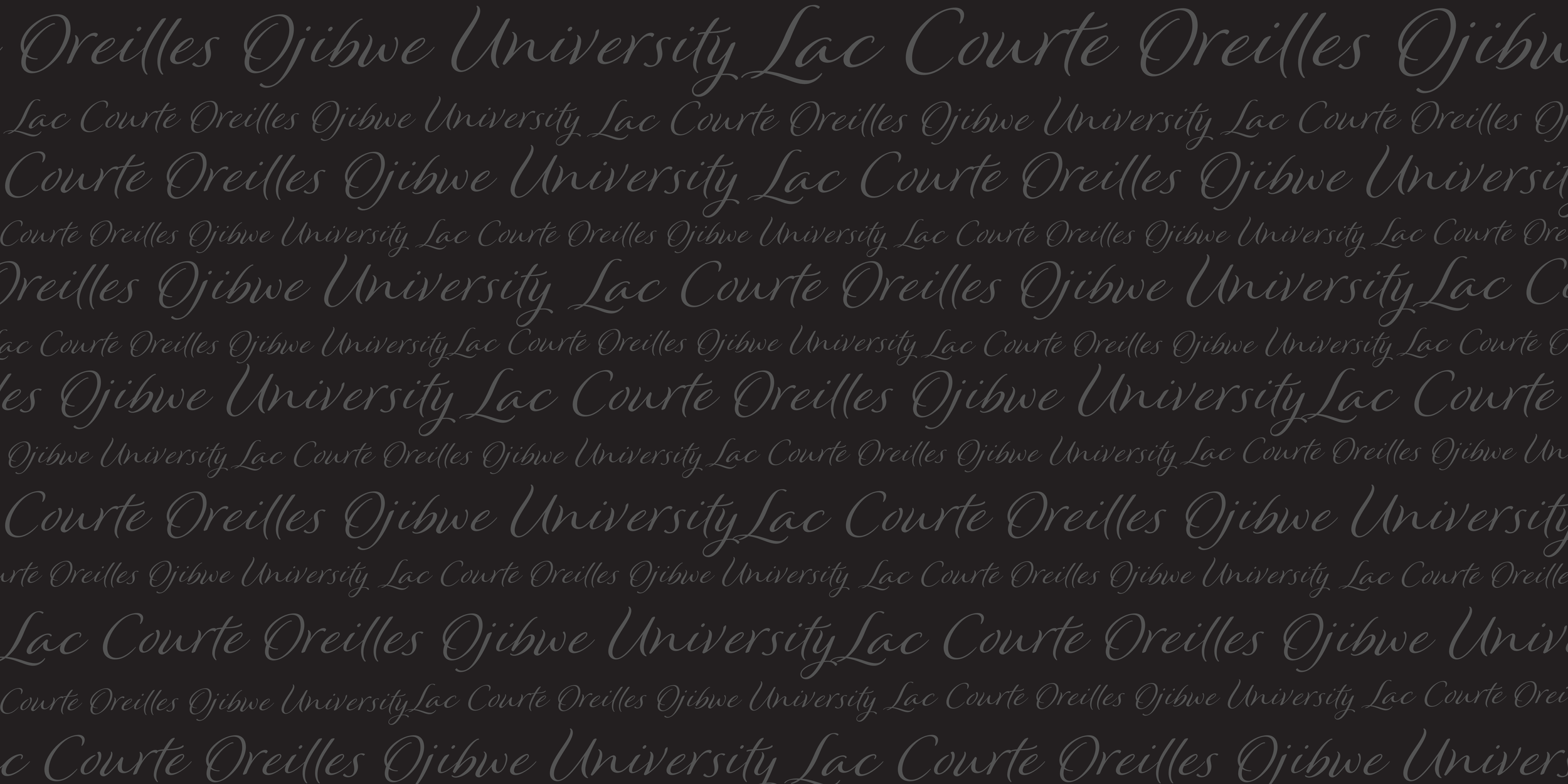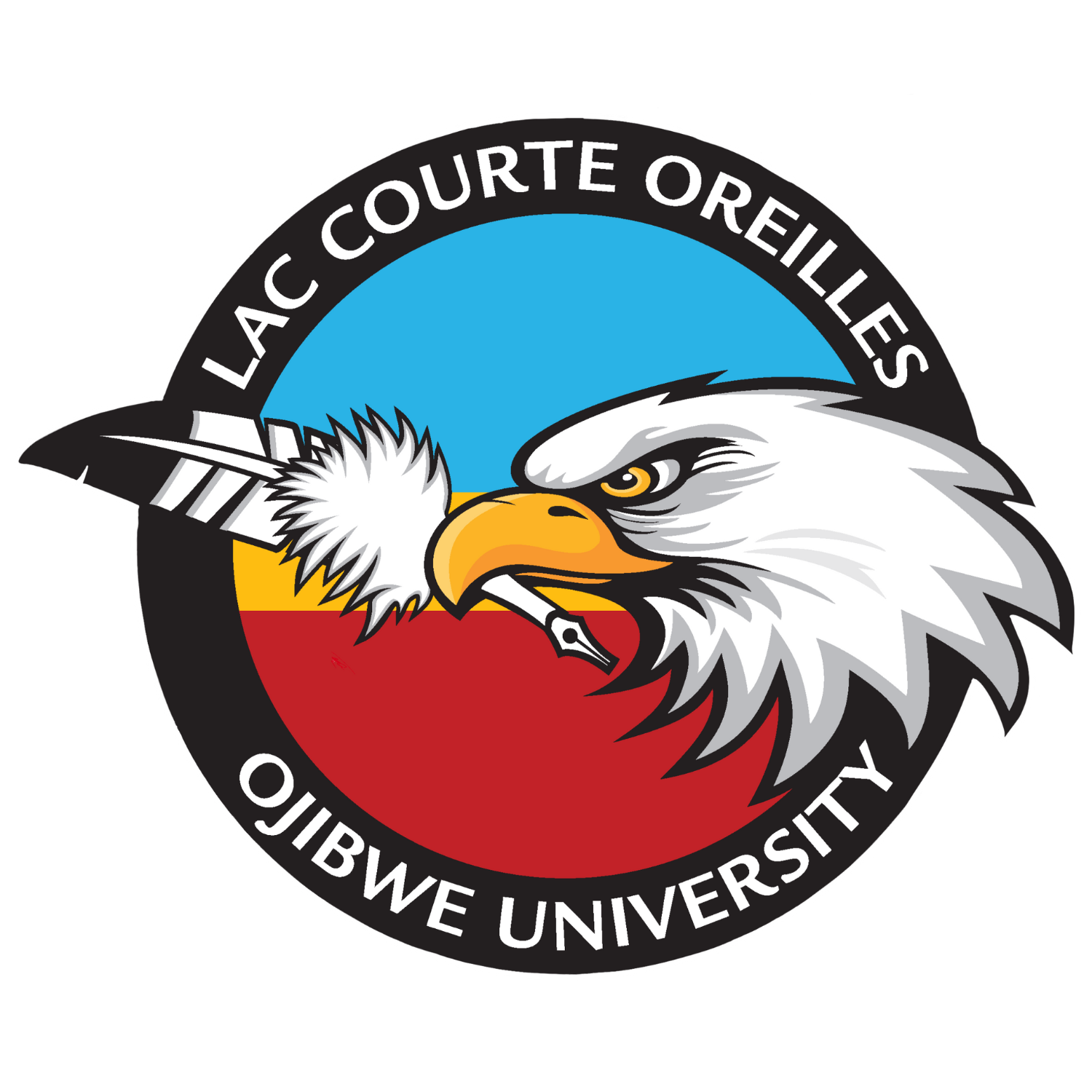Education
¶¶ŇőĆĆ˝â°ć “Ozhitamaadizoyang,” making it for ourselves
The ¶¶ŇőĆĆ˝â°ć “Ozhitamaadizoyang,” making it for ourselves, Education Department prepares culturally responsive educators through programs in Early Childhood and Elementary/Middle School Education. Rooted in Ojibwe language, culture, and values, our curriculum emphasizes Indigenous knowledge systems, inclusive teaching, and holistic child development.
Students gain hands-on experience in diverse educational settings and graduate ready to support children, families, and communities with compassion, professionalism, and a strong sense of cultural identity. Whether pursuing early childhood certification or a bachelor’s in teaching, learners are empowered to make a meaningful impact in the classroom and beyond.
-
Elementary/Middle School Education Program
The Elementary/Middle School Education Program at LCOOU prepares compassionate, culturally grounded educators to serve PreK–9 classrooms, especially in indigenous, rural, and Ojibwe immersion settings. Students learn to design inclusive lessons, assess learning, and support each child’s development through Indigenous knowledge, land-based learning, and environmental stewardship.
The program aims to increase Native American teacher representation and welcomes all applicants committed to educational equity. Graduates are prepared for roles including licensed teachers, daycare administrators, preschool educators, and Ojibwe immersion instructors. Candidates pursuing the immersion track must demonstrate or develop Intermediate-Low Ojibwe language proficiency.
Program Outcomes:Interpret exceptionalities in children and determine the best supports to deliver instruction. WI DPI #1, #2; CAEP #1, AMLE #1
Produce assessments that are aligned to subject outcomes and consider appropriate developmental abilities of the child being assessed. WI DPI #6, CAEP #3; AMLE #4
Develop a curriculum that is aligned to subject outcomes and integrate holistic approach practices. WI DPI #1 , #4, #7, #8; CAEP #2, #4; AMLE #2.
Prioritize relationships with students, families, and communities to establish reciprocal exchange of knowledge. WI DPI #10; CAEP #5; AMLE #5.
Investigate social justice education epistemologies of marginalized young children especially indigenous youth. WI DPI #9, ; CAEP #5.
Modify educational programs to instruct and guide the individual holistic development of diverse children. WI DPI #1, #7, #9; CAEP #5
Integrate Anishinaabe ontological relational knowing of culturally responsive practices to promote cultural and self identity in the classroom. WI DPI #3, #7; CAEP #3, AMLE #1.
Maximize the holistic development of the child by prioritizing a healthy, respectful, supportive, and challenging environment in the classroom and beyond for all children. WI DPI #3, #5; CAEP #1, #4; AMLE #1, #3.
Evaluate family, community, tribal, and school cultural practices pertaining to the schools region and validate marginalized peoples cultural nuances especially Anishinaabe which influences children's development and learning. WI DPI #2, #9, #10; CAEP #1; AMLE #1, #3.
Career Outlook:
Elementary school teacher
Daycare administrator
Preschool teacher
Ojibwe immersion teacher
Substitute teachers
-
Early Childhood Education Program
LCOOU’s Early Childhood Education Program equips students to create developmentally appropriate learning experiences for children from birth to age eight. Through coursework and hands-on fieldwork, students gain skills in child development, health and safety, curriculum design, and family engagement—rooted in Ojibwe culture, language, and values.
Graduates are prepared to support young children in diverse settings, including childcare centers, preschools, and Head Start programs. A background check is required for participation in all coursework and field experiences.
Program Outcomes:
Demonstrate understanding of how family structures, cultural values, community contexts, and Indigenous pedagogies influence children’s development and learning by incorporating these perspectives to create meaningful, culturally grounded learning experiences. (NAEYC Standard 1: Relationships)
Build practices that affirm the diverse identities and home languages of children and their families, including those rooted in Indigenous epistemologies and worldviews. (NAEYC Standard 2: Families and Community)
Develop learning environments that are physically and emotionally safe, culturally affirming by integrating indigenous and other culturally responsive practices to support the holistic development and well-being of all children. (NAEYC Standard 7: Physical Environment, Standard 6: Health)
Apply best practices of curriculum and instruction to foster physical and emotional well-being for all children, including indigenous children and staff (NAEYC Standard 4: Teaching).
Develop reciprocal partnerships with children, families, and colleagues that nurtures a sense of belonging, cooperation, and mutual respect across the classroom and broader community, especially indigenous communities (NAEYC Standard 1: Relationships; Standard 2: Families and Community).
Apply research-based theories and developmentally appropriate practices in curriculum planning, instruction, and assessment that show ongoing commitment to professional growth and reflection (NAEYC Standard 3: Curriculum; 4: Teaching; 5: Assessment; 8: Professionalism).
Career Outlook: The demand for Early Childhood professionals continues to increase. The typical careers that are available after graduation include:
Childcare teacher
Childcare assistant teacher
Family childcare provider
Infant or toddler caregiver
Head Start educator
School teacher aide
-
This certificate program prepares students to support young children from birth to age eight in settings like preschools, childcare centers, and Head Start programs. Rooted in Ojibwe culture, the curriculum covers child development, curriculum planning, and cultural responsiveness. The program also fulfills requirements for the CDA (Child Development Associate) License. A background check is required for all coursework and field experiences.
Program Outcomes:
Demonstrate understanding of how family structures, cultural values, community contexts, and Indigenous pedagogies influence children’s development and learning by incorporating these perspectives to create meaningful, culturally grounded learning experiences. (NAEYC Standard 1: Relationships)
Build practices that affirm the diverse identities and home languages of children and their families, including those rooted in Indigenous epistemologies and worldviews. (NAEYC Standard 2: Families and Community)
Develop learning environments that are physically and emotionally safe, culturally affirming by integrating indigenous and other culturally responsive practices to support the holistic development and well-being of all children. (NAEYC Standard 7: Physical Environment, Standard 6: Health)
Develop reciprocal partnerships with children, families, and colleagues that nurtures a sense of belonging, cooperation, and mutual respect across the classroom and broader community, especially indigenous communities (NAEYC Standard 1: Relationships; Standard 2: Families and Community).
Career Outlook: The demand for Early Childhood professionals continues to increase. The typical careers that are available after earning the certificate include:
Family Child Care Provider
Daycare Childcare Provider
Assistant teacher/helper
Key Program Information
Certificate in ECE (16 credits), Associate’s in ECE (62 credits), and Bachelor’s in Elementary/Middle School Education (121 credits) are stackable degrees
Cumulative grade point average of 2.75 is required
A background check is required no more than six months prior to admission to the education program according to PI 34.018(2). Students with certain legal convictions may not be able to work in the field of Education.
For more information request the LCOOU Education Program Requirements Guide
Program Details
The mission of the LCOOU Teacher Education Program
The ¶¶ŇőĆĆ˝â°ć Ozhitamaadizoyang “making it for ourselves” Education Department will develop and implement a teacher education program and will increase teacher candidates who value Indigenous knowledge systems in our service area of Northern Wisconsin.
The vision of the LCOOU Teacher Education Program
The ¶¶ŇőĆĆ˝â°ć teacher education program will expand educational opportunities by delivering coursework in Ojibwe and English. These opportunities will improve educational outcomes for all children, in particular American Indian children. LCOOU has a commitment to inclusive, affirming and equitable education therefore helping students develop their understanding of themselves and others.
The ¶¶ŇőĆĆ˝â°ć’s Early Childhood Education Program is aligned with both the & & & ) and reflects throughout.

-
-
Marie Tomczak
-

Kristy Phillips
-

Lori St.Germaine
-




